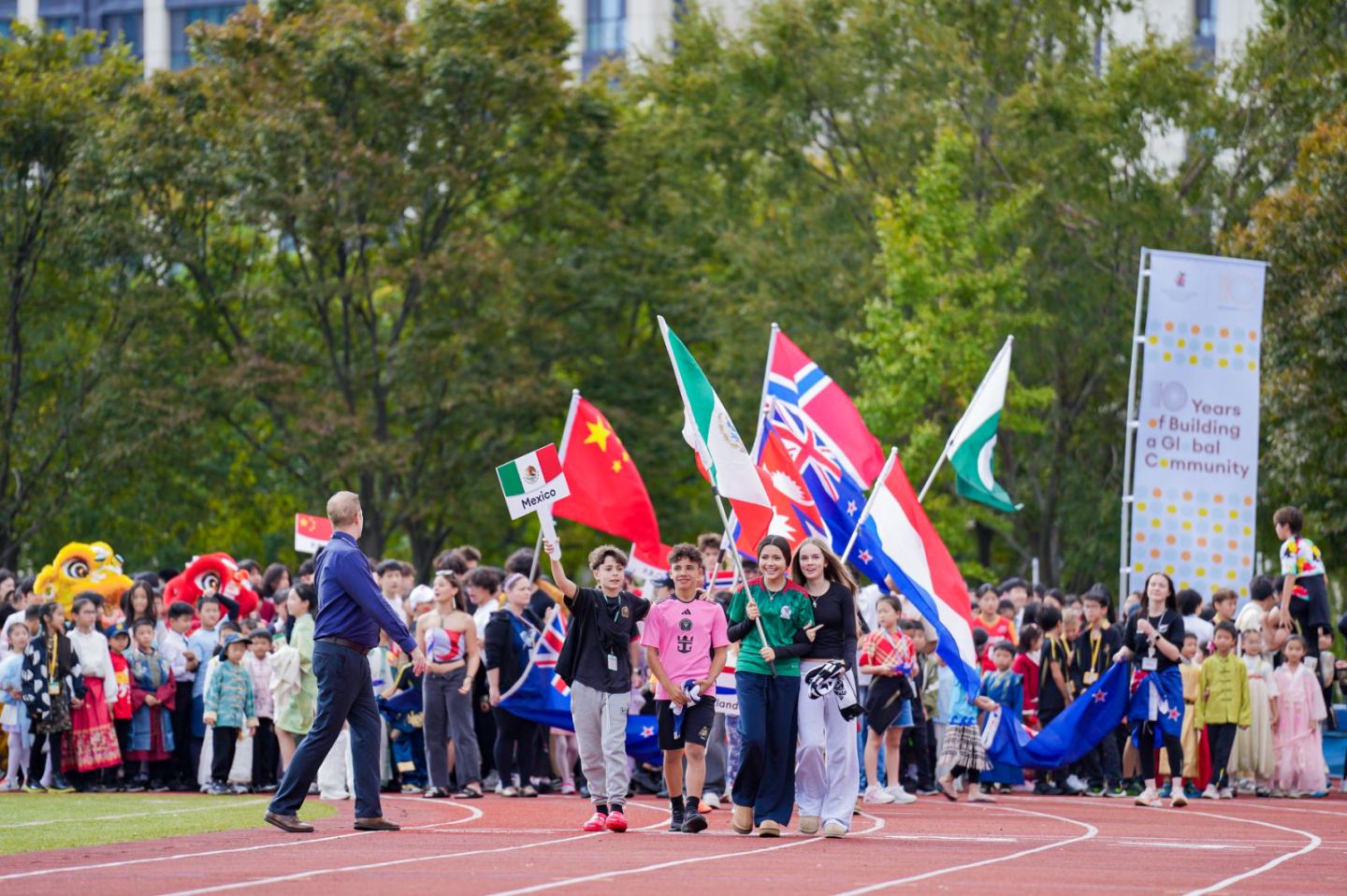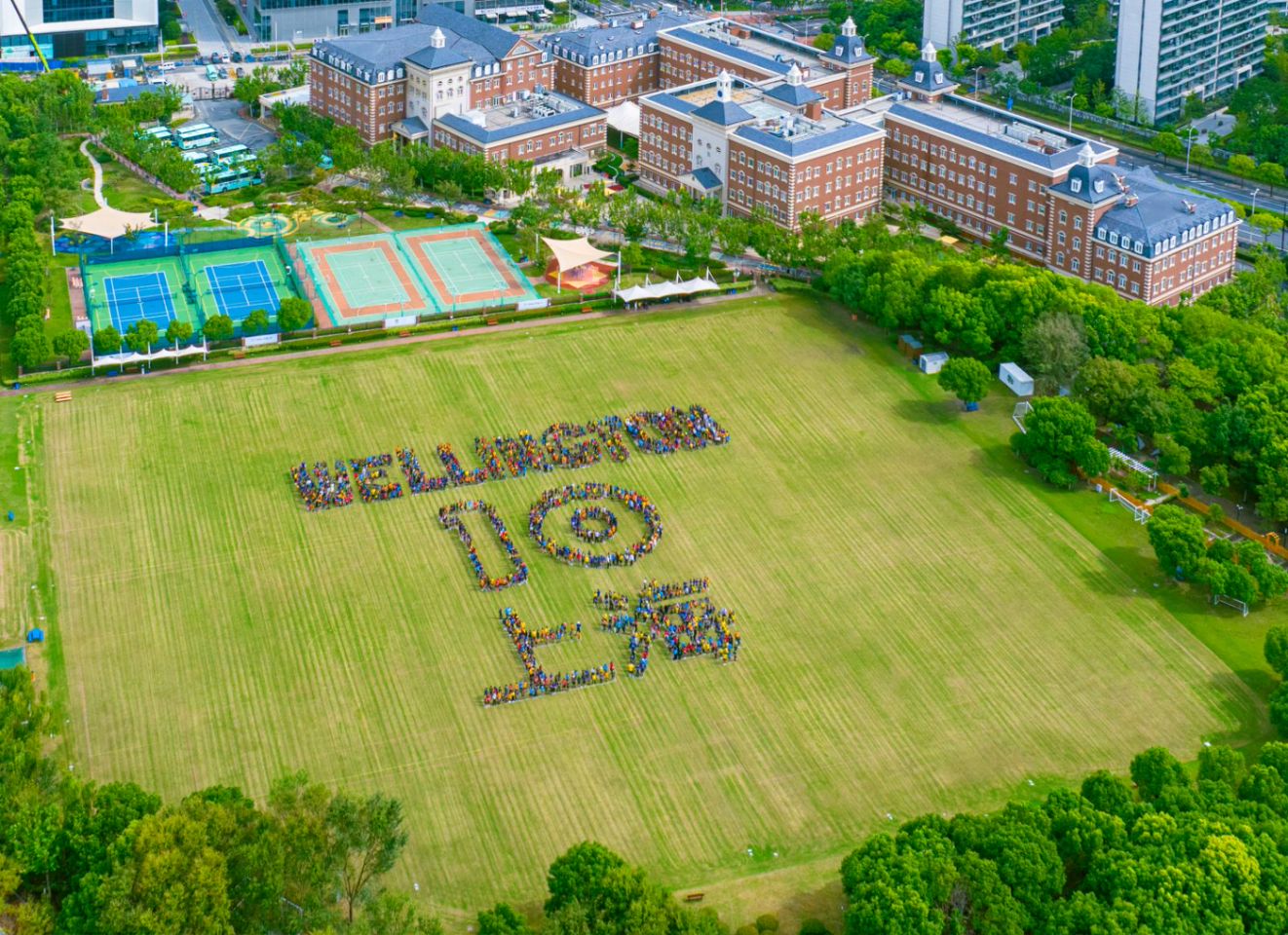Offering high-quality education, China's international schools remain an attractive option, Zhou Wenting reports in Shanghai.

Wellington College China has witnessed steady growth in the number of expat students at its six schools in four cities over the past 15 years, reflecting foreigners' continued confidence in China's economy and development, says the group's top executive.
There are currently over 5,400 students at the group's Wellington and Hiba schools in Tianjin, Shanghai, Hangzhou in Zhejiang province, and Nantong in Jiangsu province; and the student number has risen, says Joy Qiao Ying, founder and chairman of Wellington College China.
"Taking Wellington College International Shanghai as an example, there were over 300 students when it opened a decade ago. Now, we are near full capacity at over 1,600 students," says Qiao during an exclusive interview on Friday when the school celebrated its 10th anniversary.
READ MORE: A crash course in cultural exchanges
"We're extremely lucky as a service provider in the education sector that has been riding on the giant, historical wave of China's rapid economic development," Qiao says.
"Increasingly, I hear multinational companies say they are in China not just because it is a big market or a place for manufacturing but because the country is attractive for its massive talent pool across disciplines and industries and its global perspective and linguistic ability," she says.

By staying in Shanghai, and with China being one of the largest international school markets globally, expat children enjoy top-quality education that they might not have access to in their home countries. This is one attraction or competitive advantage for expats to live and work in China, says Qiao.
Wellington College China schools, for which the annual tuition fees in Shanghai range from 166,000 yuan ($23,000) to 380,000 yuan, have students from more than 50 countries and regions around the world, especially from the United States, the United Kingdom and other European countries. Many children also come from South Africa, Southeast Asian countries, Australia and Canada, among others.
Parents work in all sectors in China. "Taking our Shanghai schools as an example, the diverse areas relevant to technology and innovation — clean energy, electric vehicles, pharmaceuticals, finance, and advanced manufacturing — have representation in our parent body," says Qiao.
"Recently, we noticed many of the parents of students newly joining us are from the pharmaceutical sector. Perhaps it is a result of our location or the features of Shanghai's economy as a whole," she says.

Many expat parents appreciate that Chinese language courses are mandatory in early years for everyone who attends, says Qiao.
"China is an increasingly influential participant on the global stage. Parents see it as a significant, competitive advantage for their children to master the Chinese language, which is the most spoken worldwide and perhaps the most difficult to learn," she says.
Students can also select Chinese culture studies courses, which are a combination of history, geography and moral education.
"Celebrations and activities are held on the campus for all the important traditional Chinese festivals — Dragon Boat Festival, Lantern Festival and Mid-Autumn Festival," says an eighth-grade student from the UK at Wellington College International Shanghai, who asked to be identified as Benjamin. "This allows us to experience the local culture."
About 30 percent of graduates from the Wellington and Hiba schools go to the world's top 20 universities and about 60 percent go to top 50 universities. They ultimately become cultural ambassadors and help the world better understand China.

Qiao recalls a boy named Marcus from a family of Spanish and English parents who began his studies at a Wellington school in Tianjin at age 11. He is currently a senior at Peking University majoring in Chinese literature. He intends to continue with graduate studies in Chinese literature at Peking University.
Qiao also mentioned that the number of Chinese students from the group's Hiba brand (which accepts students of both expat and Chinese parents), who returned to the country after pursuing studies overseas, is on a significant rise.
A report by LinkedIn released in August echoed these statistics — 84 percent of Chinese students pursuing further studies abroad prioritize returning to China as their first option for their career. The percentage almost doubled from the previous year.
Another alumnus named Kevin who graduated from a Wellington school in Shanghai came from a family in Wuxi city, Jiangsu province, where there was a tradition of making huishan niren, clay figure handicrafts.

After receiving his university education abroad, he returned to China and modernized the concept of the traditional art form by combining it with coffee.
"He runs a coffee shop where the clay figures are exhibited and sold. Such fusion allows the traditional Chinese art form to be more accessible and appreciated by a younger, global audience," says Qiao.
ALSO READ: International schools: UK and China expand horizons and confound IPAC
Wellington College China is scheduled to open its first school overseas in San Francisco in the fall of 2026, providing immersive English and Chinese bilingual education.
"The school in San Francisco will offer education to the offspring of overseas Chinese and a lot of non-Chinese people who see the advantages of learning the Chinese language and culture," Qiao says.
Contact the writer at zhouwenting@chinadaily.com.cn


